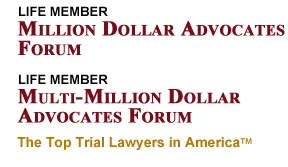Texas Court Holds Plaintiff Failed to “Pierce the Corporate Veil” of Employer
One of the primary factors business owners consider when choosing how to set up their company is how each type of structure will impact their personal liability, should the business fail, or incur sizable debt during its operation. Historically, there have been three main types of business organization structures: sole proprietorship, partnership and corporation. Sole proprietorships and partnerships generally do not protect business owners’ personal assets. On the other hand, limited partnerships and corporations can protect businessowners’ individual assets, limiting liability to their ownership of the business. It was not until more recently that business owners had the choice to set up their business as a Limited Liability Company (LLC), which also can protect a business owner’s individual assets.
While corporations, limited partnerships and LLCs all provide for the protection of a business owner’s individual assets, that protection is not absolute. In a recent Texas employment dispute, an employee argued that his employer’s misconduct should allow him to pierce the corporate veil and hold the business owners personally liable.
According to the court’s opinion, an employee was working in an at-will position with a sign company. One day, the employee was seriously injured while working on a job. His employer did not subscribe to the Texas Workers’ Compensation program, so the injured employee was unable to obtain workers’ compensation benefits. The employee, however, filed a claim against the business and two of the business’ owners, claiming that the two owners were “the alter ego” of the sign company and also because the sign company was “a sham entity used to perpetrate a fraud.” In a brief opinion, the trial court dismissed the employee’s claim without providing a reason. The employee appealed to a higher court.
On appeal, the employee argued that the lower court should have held that the business owners’ conduct pierced the corporate veil. The court began by noting that, in general, “a corporation is presumed to be a separate entity from its officers and Shareholders.” However, a court may ignore this protection if a plaintiff can establish one of at least three situations:
- The corporation is an alter ego of its shareholders;
- The corporation is being used for an illegal purpose; or
- The corporation is being used as a sham to perpetrate a fraud.
Here, the court noted, that the only claim raised by the employee was that the business owners were alter egos of the sign company. The court explained that there is a general reluctance for courts to allow a corporate veil to be pierced, and that it is reserved for “exceptional circumstances.” When it comes to piercing the corporate veil on the basis of the business being the alter ego of the shareholders, courts consider whether 1) the corporation is being used as a mere conduit for another, 2) there is such “unity between corporation and individual that the separateness of the corporation has ceased” and 3) holding that only the corporation was liable would result in an injustice.
The court went on to explain that certain facts may support a finding that a business is an alter ego of its owners, including:
- A failure to keep the assets of the business separate from those of the business owner;
- Inadequate capitalization;
- The use of company profits for personal reasons;
- Any representations that the business owner will financially back the corporation; and
- The payment of corporate debts with personal checks, or other evidence that business owners commingled personal and business funds.
Here, the court weighed each of the factors and determined that the employee did not present sufficient evidence to pierce the corporate veil. Specifically, the court considered that there was no evidence that the business owners paid corporate debts with personal funds, comingled business and personal funds, made any representation that they would financially back the business, or used the business profits for personal use. Thus, the court rejected the employee’s claim against the business owners.
Is Your Texas Business Dealing with a Complex Legal Issue?
When success matters, every decision you make for your business is essential. Choosing which Austin business litigation firm to handle the unique issues your business faces is no exception. At the Law Offices of Gregory D. Jordan, we have over 30 years of experience helping all types of businesses deal with the full range of legal issues they confront, including breach of contract claims, and business fraud cases. We can confidently handle many problems your business may be facing. To learn more about how we can help your business through the issues it faces, call 512-419-0684 to schedule a consultation today.



